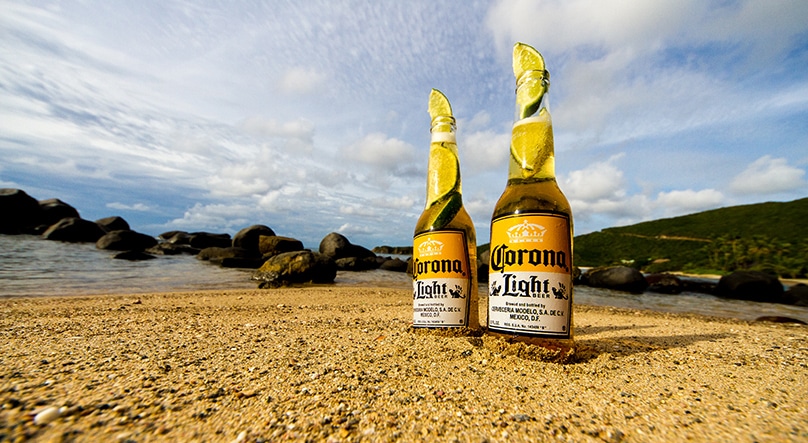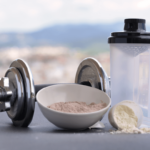“In wine there is wisdom, in beer there is Freedom, in water there is bacteria.”
-Benjamin Franklin
There’s no secret that many CrossFitters are quite fond of alcohol. This is likely due to the character of a person who literally pays to put themselves through pain and hardship in pursuit of their fitness goals, all the while enjoying the process. As the clichéd saying goes, “work hard, play hard.” Of course, not every CrossFitter frequents the ale on every occasion, but as working adults we enjoy (or more appropriately, need) a release in the high stress society that we live in. CrossFit is a great way to achieve that release, but at the end of a brutal week of work and WODS, who could say no to an ice-cold beer or glass of wine? I certainly couldn’t. In fact, I’m having a pint right now. Anyway, alcohol is often bashed for its negative health effects, especially as it relates to athletic performance. But in what ways? Let’s take a closer look at our boozy companion.
How alcohol works
When you consume an alcoholic beverage, the alcohol (ethanol) makes its way to your stomach where around 20-25 percent of it gets absorbed into your blood stream immediately. The rest of it continues to your small intestine where it is later absorbed by the blood stream once more. Once it’s in your blood stream, the alcohol makes its way to the liver where it is metabolized (broken down).
Alcohol is metabolized by a normal liver at a rate of about one ounce (one shot, a normal beer, a regular sized glass of wine) every 90 minutes. There are a number of varying factors that can affect this rate. These include body fat percentage (lower the body fat, lower the blood alcohol level) and gender (women typically process alcohol slower than men). Any amount of alcohol over the one ounce per 90 minutes ‘quota’ doesn’t get processed right away, and instead saturates your blood until your liver is able to process the excess alcohol.
Since alcohol is a central nervous system depressant, the first couple of drinks you have can help you relax. But as the amount of alcohol in your blood increases, the effects become more and more apparent: this is officially known as getting drunk.
So now that we know how alcohol works, it’s time find out why drinking too much, too often, can really hamper your progress as an athlete.
It negatively affects protein synthesis.
Alcohol disrupts your body’s ability to absorb protein, impacting protein synthesis. Protein synthesis is the process where amino acids are joined together to form complete proteins. If you expect to see your muscles grow and become stronger, you must have a positive muscle protein balance. Which means that a lack of exercise or protein intake could mean that your muscle breakdown would exceed your muscle growth. This would lead to a catabolic state in which you are losing muscle tissue. A study published in Alcohol and Alcoholism in 1991 found that consistent intake of alcohol halted protein synthesis and caused myopathy in many cases. Myopathy is a condition in which muscle fibers do not function properly, resulting in muscle weakness or loss of movement.
It lowers testosterone levels.
Testosterone is a key hormone within the body that allows muscles to grow and repair. Low levels of testosterone (or decreases in the hormone) are linked with decreases in lean muscle mass and muscle recovery, which is obviously bad news. The presence of alcohol in your body triggers a multitude of chemical processes, including the release of a toxin from your liver that attacks the amount of testosterone you have. A 2009 study published in Bonefound that frequent drinkers in the armed forces had significantly low testosterone levels, as well as high estrogen levels. This is important because estrogen lowers the amount of testosterone in the body, and yep, you guessed it, alcohol slows down your ability to process estrogen, allowing it to build up in your blood stream.
It causes dehydration and depletes your energy
Alcohol is also a diuretic: A substance that promotes the production of urine. This means that the kidneys have to work overtime in order to filter very large amounts of water in order to break down the alcohol you consume (through urine). And depending on how much you drink, this can actually lead to severe dehydration. While dehydrated, you’re at a greater risk of sustaining musculoskeletal injuries such as cramps, and muscle strains. Furthermore, your appetite will decrease, despite the fact that you still need to be consuming the same amount of food as before to fuel your body for training.
Once alcohol is absorbed through your stomach and small intestine and moves into your cells, the water balance in your body is disrupted. This makes the ability of your muscle cells to produce adenosine triphosphate (ATP) that much harder. ATP is a fuel source that is crucial in helping your muscles contract. A reduction in your body’s ATP can result in a lack of energy and loss of endurance. In addition, water plays a crucial role in the muscle-building process, as muscles alone are 70 percent water. So even if you are just slightly dehydrated, your muscles will suffer for it.
It depletes the body of vitamins and minerals, if consumed in large amounts.
We all need vitamins and minerals to keep our body healthy and functioning properly. Unfortunately, alcohol consumption causes vitamins A, C, the B’s, calcium, zinc and phosphorus to all be drained at rapid rates. It’s essentially like taking one step forward and two steps back. Which is probably how you’d walk when tipsy, ironically enough.
Moving on.
It increases fat storage.
Alcohol has about 7 calories per gram, meaning that you could be drinking a hefty meal on a night out without even realizing it. Unfortunately, your muscles are not able to use these calories for fuel, as instead of being converted to glycogen (a form of stored carbohydrate) your body treats alcohol as fat. As a result, alcohol consumption increases fat storage and can adversely affect your percentage of body fat.
Alcohol negatively impacts muscle recovery
After a strenuous workout, your muscles need time to recover and repair the tears in the muscle fibers. This is how your muscles grow and become stronger. One of the best ways to recover is through quality sleep, but because drinking alcohol negatively affects your sleep patterns, your body is robbed of a precious chemical called human growth hormone, or HGH, that is released during sleep. HGH is vital in the growth and repair of your muscles, but alcohol can decrease the secretion of HGH by as much as 70 percent! Unsurprisingly, the studies back this up. In 2012 a group of researches at Massey University in New Zealand published a series of studies showing that the consumption of alcohol post-exercises severely restricts an athlete’s ability to recover from delayed-onset muscle soreness.
But it’s not all bad news when it comes to booze!
In addition to its stress-relieving effects, certain types of alcohol contain beneficial antioxidants and anti-inflammatory compounds. For example, red wine contains a chemical known as resveratrol that reduces your blood pressure, and consequently protects your cardiovascular system. Of course, one could get the same benefits from a host of healthy food options, but where’s the fun in that?
The role of alcohol within your diet should not be underplayed, but I don’t think you should ignore it all together. Understand that it may be a reason you’re struggling to progress in your fitness goals, so cutting back is probably a wise decision. But at the same time remember that you only have one life so you should live it to the fullest! If that means having a nice brew once in a while then so be it.
Photo courtesy of Lotus Carrol/CC BY-NC-SA 2.0
















